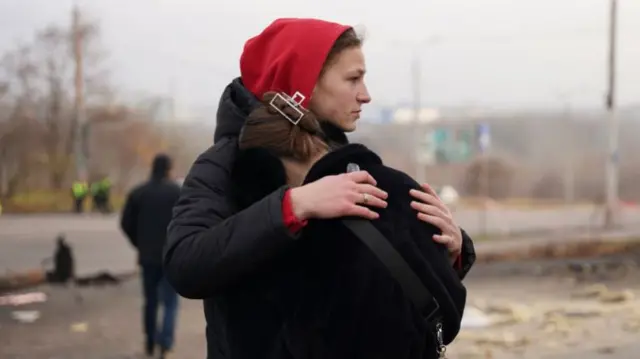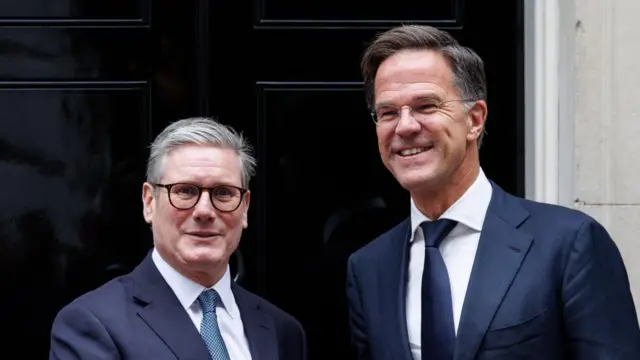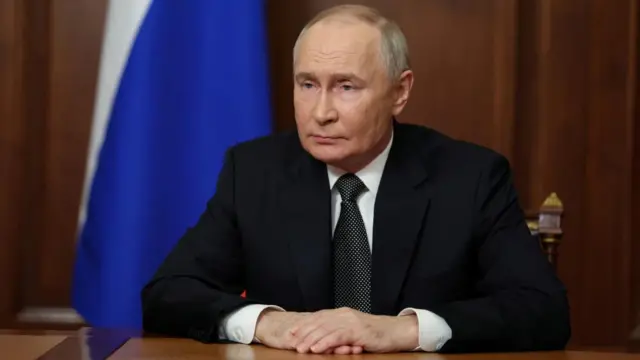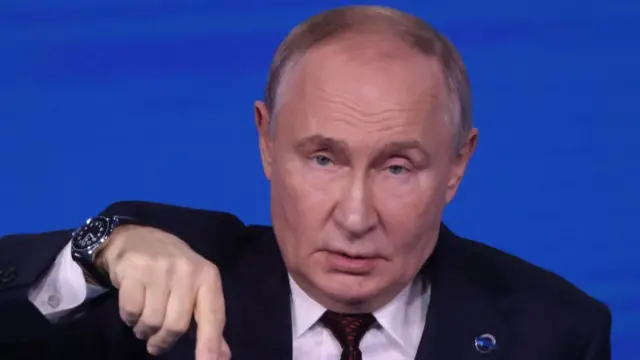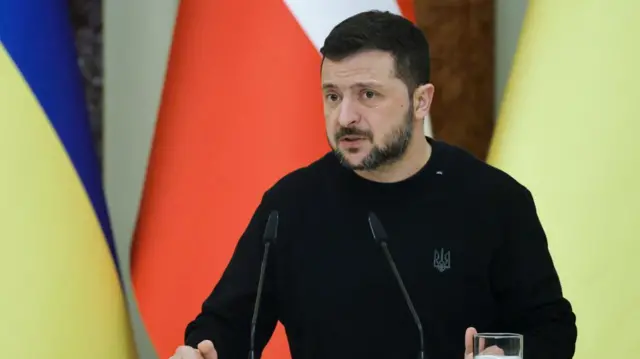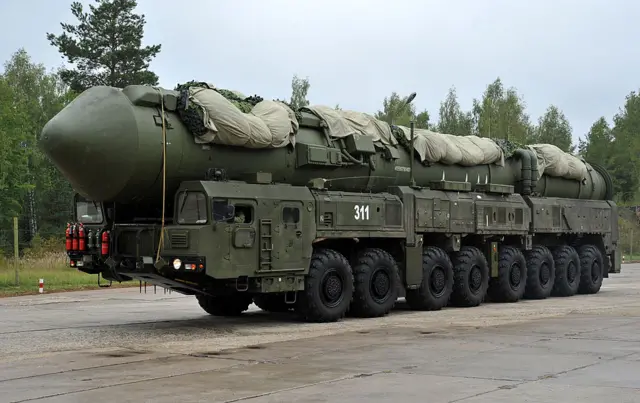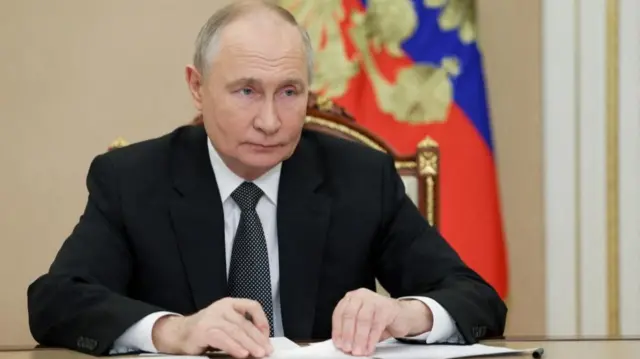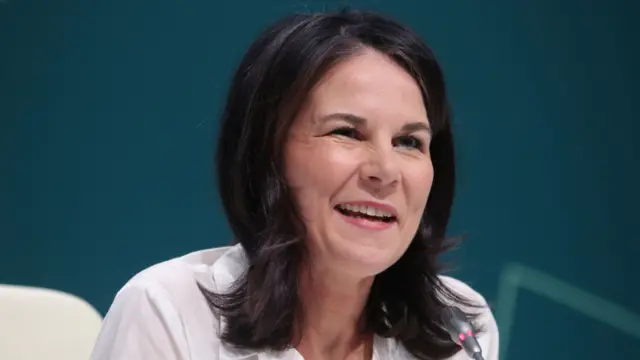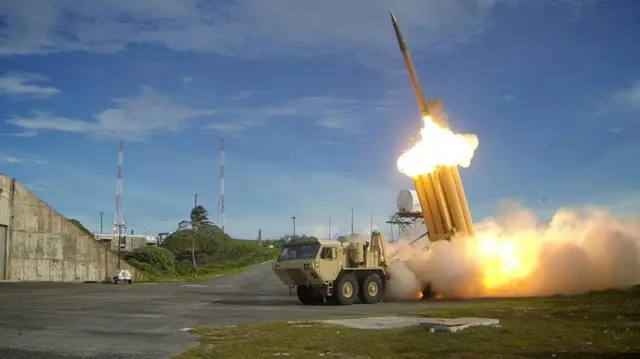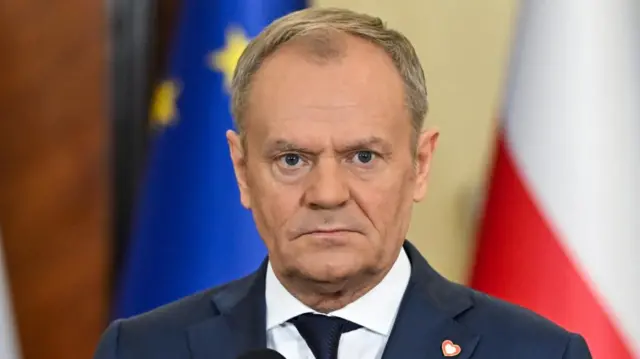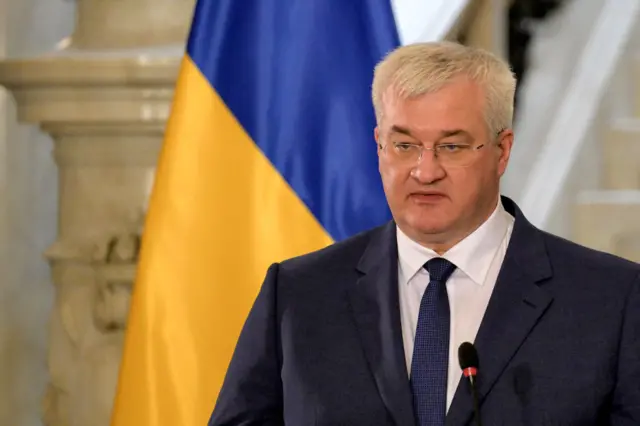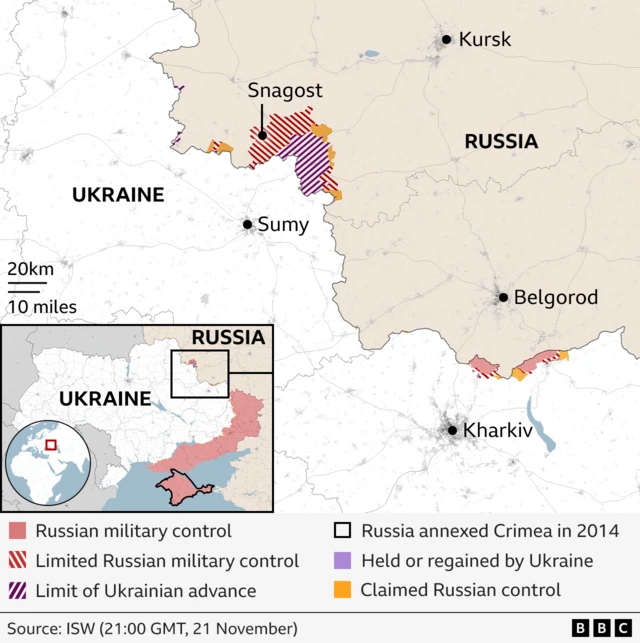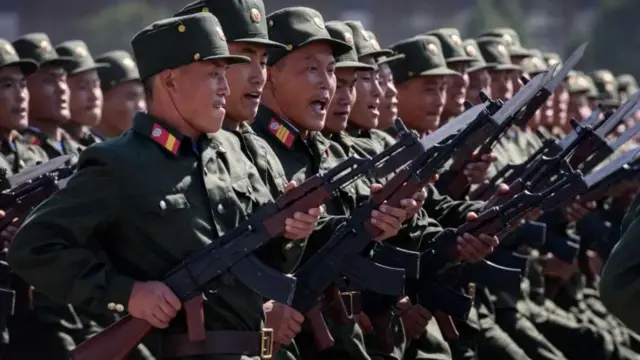Tensions grow as Russia unveils new hypersonic missilespublished at 20:03 GMT 22 November 2024
Rorey Bosotti
Live editor
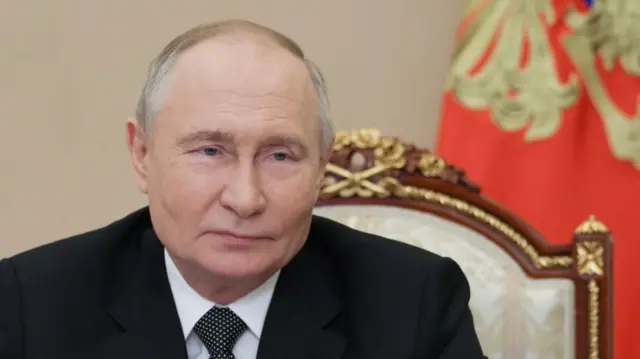 Image source, Getty Images
Image source, Getty ImagesIt’s been another day of tensions running high as Ukraine renewed its appeal for a “strong response” from the West to Russia’s ongoing hostility.
Ukrainian President Volodymir Zelensky kicked off the day warning Russia remains uninterested in peace, describing the use of a new type of missiles in Dnipro yesterday as a “clear and severe escalation”.
While Russian leader Vladimir Putin said the new projectile - codenamed Oreshnik – had been deployed in response to Ukraine using US and UK-provided missiles to strike targets inside Russia.
Nato insisted the attack in Dnipro will “neither change the course of the conflict or deter" the alliance’s support to Kyiv.
But Hungarian PM Viktor Orban said the West should take Putin’s warning – including the claim Russia has a stock of missiles “ready to be used” – at “face value”.
Russian forces struck the Ukrainian city of Sumy, approximately 30km from the border, killing two people and injuring 12.
- You can read more on how today unravelled in our story.
We are now bringing our coverage of the day to an end, thank you for joining us.
